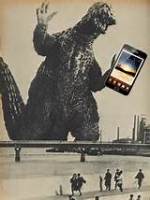 Sherry Turkle says that mobile devices have changed the way we behave in our real lives (TED, 2012, April 3). I never would consider texting at a funeral. Of course, I do not text at all. Unless I am forced by someone, that refuses to speak to me on the phone. If they do not want to talk I push them to use my personal email address. “Goldilocks effect” not to close and not to far (TED, 2013, April 3). Conversations do make us vulnerable, and I guess people do clean up things using technology, but sometimes people share too much via the internet or technology. Morozov definition of “solutionism” is using technology to solve problems in real life (The Economist, 2013, May 2). I agree I wanted to lose a few pounds for my wedding, and I used an app for a month to help me track my calories. It was too time consuming, and my life was changing. I did not have time to track my calories. I continued to attend Zumba, and control my diet and I lost weight. I really did not need an app, and I did not want to post my activity to social media or share it with my friends. I did not need an app for this.
Sherry Turkle says that mobile devices have changed the way we behave in our real lives (TED, 2012, April 3). I never would consider texting at a funeral. Of course, I do not text at all. Unless I am forced by someone, that refuses to speak to me on the phone. If they do not want to talk I push them to use my personal email address. “Goldilocks effect” not to close and not to far (TED, 2013, April 3). Conversations do make us vulnerable, and I guess people do clean up things using technology, but sometimes people share too much via the internet or technology. Morozov definition of “solutionism” is using technology to solve problems in real life (The Economist, 2013, May 2). I agree I wanted to lose a few pounds for my wedding, and I used an app for a month to help me track my calories. It was too time consuming, and my life was changing. I did not have time to track my calories. I continued to attend Zumba, and control my diet and I lost weight. I really did not need an app, and I did not want to post my activity to social media or share it with my friends. I did not need an app for this.
I invited intermediate family and a few friends to my wedding. The pastor that married me was my brother in law. So, my wedding was very private. A friend that attended my wedding said she would not post my wedding pictures to Facebook. It was something I did not even consider someone doing. My niece asked my husband if she could post his picture to Facebook, and he said no. Another friend posted my wedding picture to Facebook, and it upset me. I did not get the opportunity to tell people personally I was getting married. My friend took that away when she posted this very personal moment to Facebook. I wanted to share this moment in my own way and when I wanted to and I lost it. I had considered deleting my Facebook account, but it gives me the opportunity to view what my friends post. Especially if it is something that may affect my career, and I want to control what is shared. Turkle makes a good point, “I want to have a feeling, I need to send a text,” and I understood my friend was excited about my wedding and wanted to share with her Facebook following (TED, April 2012, April 3).
When I look at the history of my library’s Facebook page everything a librarian came across in real life would be posted. I cannot say there was any intention, and there was lots of over sharing. No employee was safe!
 The librarian would post everyone’s picture in almost any situation. Now, I have made our Facebook posts very intentional and focused on things specific to students’ needs. Teaching them how the library can help them.
The librarian would post everyone’s picture in almost any situation. Now, I have made our Facebook posts very intentional and focused on things specific to students’ needs. Teaching them how the library can help them.
I considered introducing students to the apps for databases, but they are not user friendly. The format of the database page does not change much, and the font is so small. I really did not find it easy to use. So, I continue to teach students how to search the electronic databases using the internet.
Technology presents many opportunities. In some ways I agree and disagree with Keen. For example, when doo wop was created teenagers wanted to have a doo wop group. When Elvis Presley started to shake his hips and present rock n roll to white teens. You have more white teens wanting to sing rock n roll. I think it is part of being young. Young people will try anything, and we have the belief that we have to try. Technology has just given people a new opportunity to display their talents, or fulfill their dreams.
In the library world we need to try things more often. In order for libraries to survive they need to try and incorporate technology. Of course, not everything will work for every library. My library may not benefit from Insta.gram, but a Facebook page may be enough for us to reach our patrons.
I disagree with Keen that we are going into a cultural dark age (PressPausePlay, 2011, September 14). As an African-American woman and an art school grad I like the fact that barriers are being torn down. The talents of those despite socioeconomic, race, nationality, gender, etc. are being recognized due to technology and social media. I appreciate being given the opportunity to choose what I want to watch, listen to, and what I view as art. Instead of so called experts telling me what I should like.
I am a fan of television, and one of my favorite moments is Susan Boyle’s first audition on Britain’s Got Talent when she was perceived as a joke, and blows everyone away with her voice. I did not get a chance to watch it on television, but I did view it on YouTube. I am happy I had the opportunity to view it, and I chose to like it.
References
PressPausePlay. (2011, September 14). Andrew Keen. Retrieved from http://www.youtube.com/watch?v=0UA1aTaa3Pg
TED. (2012, April 3). Sherry Turkle: Connect, but alone? Retrieved from http://www.youtube.com/watch?v=t7Xr3AsBEK4
The Economist. (2013, May 2). Evgeny Morozov on technology: The folly of solutionism. Retrieved from http://www.youtube.com/watch?v=fOvaNzIxz54
Image Credits:
Sherry Turkle news.aaas.org
Godzilla with a cell phone, http://www.frankincenseandmirth.com/2013/08/31/power-plants-power-trips-and-the-powers-that-be/


” I appreciate being given the opportunity to choose what I want to watch, listen to, and what I view as art. Instead of so called experts telling me what I should like.” Well-said!
I’m glad you showed Susan Boyle’s audtion video. I remember the first time I watched it, I cried…it was so touching and beautiful. And yes, I chose to like it, too 🙂
Thanks @marisa-slis! 🙂